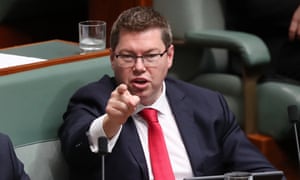Extract from The Guardian
Leftwing frontbencher says ‘handing more power to the rank and file doesn’t weaken the party’
“I think there are some elements in the right faction which see democratisation as a threat to their power base,” Conroy said. “In my experience handing more power to the rank and file improves the party, it doesn’t weaken the party”.
Butler, a Labor frontbencher as well as party president, has made two significant speeches over recent weeks warning Labor needs to do more to empower rank and file members and diminish the relative power of factional and union leaders.
The party president noted in one of his January speeches that Labor “remains a party that gives ordinary members fewer rights than any other Labor or social democratic party I can think of”.
Butler’s controversial public incursions appeared to trigger an immediate reaction from the right faction, with party sources suggesting the former Rudd and Gillard government treasurer, and prominent rightwinger Wayne Swan, could be drafted to run for party president.
There were also reports that officials could seek a rule change banning frontbenchers from contesting the party’s presidency, a move apparently prompted by Butler’s call for democratisation.
Butler is a significant figure in the left, and is a close ally of the New South Wales leftwinger, Anthony Albanese.
With Labor due to hold a national conference in the middle year, a public debate about party rule changes was inevitable, given the issue is a national conference standard – but some party figures have interpreted Butler’s positioning as a proxy war, or a shot over the bows of the federal leader, Bill Shorten, who hails from the Victorian right.
Conroy, a next-generation figure in the NSW left, told Guardian Australia Swan was welcome to run for the party’s national presidency, but a party president also needed to champion the cause of democratisation.
“Wayne has made a fine contribution to the party and I welcome the rank and file having a full choice about who to elect – but the key thing is we also need to push back against any push by some elements of the party to halt the momentum to increasing democracy within this party,” Conroy said.
“Any talk of a rule change prior to the national presidency ballot can only be seen in that prism – of stopping the push to democratise the party further.”
Conroy said Butler would have his support to continue as party president and pursue the reform issues he had flagged, and there was no reason to bar frontbenchers from the party presidency.
He said he had “full confidence” that Butler could be national president of the party “and a senior cabinet minister in a Shorten Labor government at the same time”.
“Many previous senior figures have held dual roles, including Jenny Macklin, John Faulkner, four Labor premiers were presidents while holding senior roles, and I see no reason why Mark Butler can’t do the same thing.”
The public positioning by Butler and Conroy reflects a strong desire by the left faction to crash through on democratic reform when party members meet at the midyear national conference.
The democratic reform debate at Labor’s last national conference was little better than a farce.
Historically within Labor culture, rightwingers resist proposals for democratisation because such proposals boost the internal power of the left in party forums.
The left faction tends to prevail over the right in open party ballots.

No comments:
Post a Comment